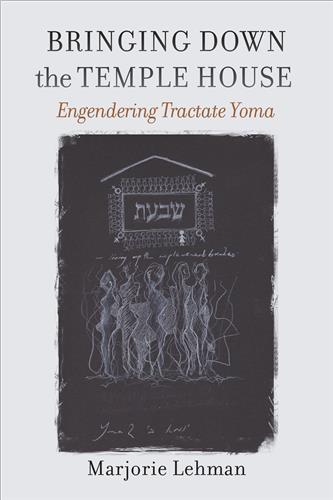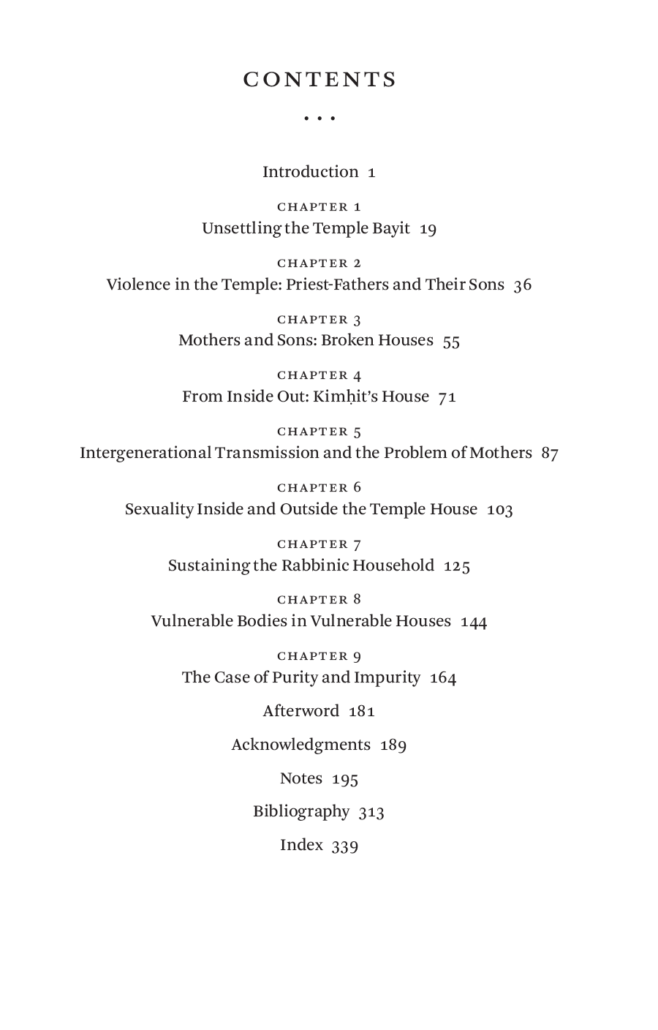Happy families may all be alike, but the priestly family is unhappy in its own ways, shows Marjorie Lehman in her fine-grained readings of Babylonian Talmud Tractate Yoma. Lehman’s story is one of patriarchy and hierarchy, but also of vulnerability and reflection, as the tractate turns towards the practices of self-affliction that, until today, characterize the day of atonement. Tractate Yoma reads, if not quite like a novel or poem, then like a series of meditations on the shifting meanings of home and the anxieties about continuity and control. You will leave Bringing Down the Temple House never thinking the same way again about ‘the house’ as a Jewish cultural topos.





